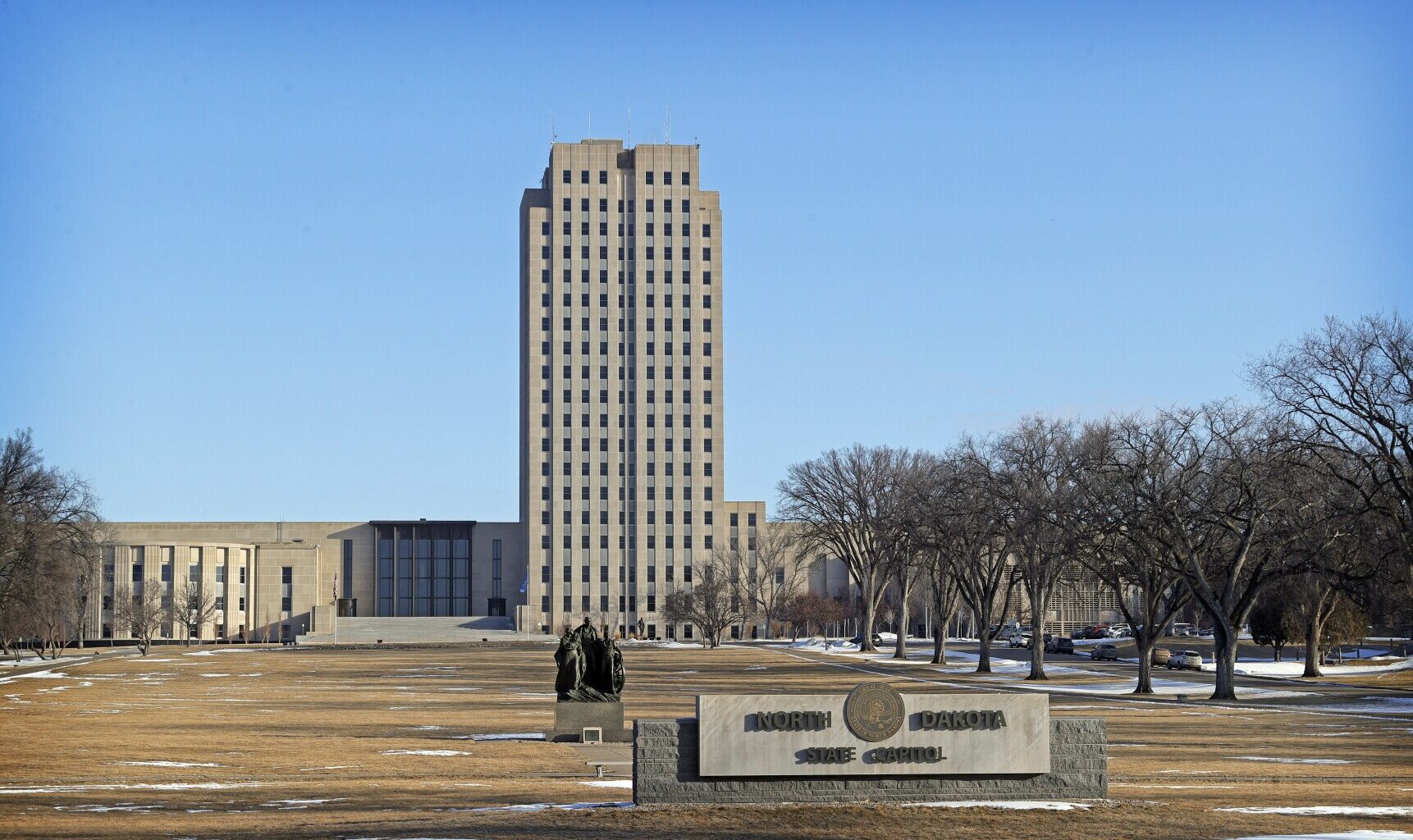MINOT — There really is no good reason for us to still be debating the gaffe made by Gov. Kelly Armstrong’s office in a line-item veto for a $150,000 grant.
The legal questions around it are actually pretty simple, though you wouldn’t know that from the voluminous memos Legislative Council has delivered to their clients in the Legislature.
The state constitution
about the process for the governor issuing a veto: “The governor shall return for reconsideration any vetoed item or bill, with a written statement of the governor’s objections, to the house in which it originated.”
That’s what Armstrong did with
He issued a line-item veto for a grant within that budget and sent the bill back to lawmakers with a veto message that accurately described his veto. The problem arose when a visual aid that accompanied that veto message excised an entire $35 million housing appropriation in that bill and not just the grant.
The Legislature’s lawyers flagged the problem with the visual aid and have chosen, in a feat of legal gymnastics, to interpret it as Armstrong vetoing the entire $35 million appropriation and not just the grant.
Armstrong immediately acknowledged his mistake and requested a legal opinion on the matter from Attorney General Drew Wrigley. Wrigley
that the veto message, not the visual aid, is what matters because the message is the only thing the state constitution requires Armstrong to send to lawmakers.
YouTube Shorts Embed
This appears to be a straightforward and accurate interpretation of the law.
The Legislature’s lawyers, however, continue to insist this isn’t the case. They’ve now delivered
to a meeting of the interim Legislative Management Committee, accusing the executive branch of trying to infringe upon the Legislature’s constitutional duties.
“Through this opinion, the Attorney General endeavors to expand his power and the veto power of the Governor, allowing them to resolve ambiguity by agreement, and infringes on the ability of the Legislative Assembly to exercise its veto override power effectively,” the memo reads.
This is nonsense.
Nothing is stopping lawmakers from calling themselves back into session to override Armstrong’s veto. Legislative Council is accusing the executive branch — the governor and the attorney general — of expanding their power, but Armstrong might argue that what’s really going on is the Legislature (or, more accurately, the Legislature’s lawyers) have taken it upon themselves to tell the governor what his veto message means.
Legislative Council’s argument rests on the idea that Armstrong’s veto was ambiguous, but it wasn’t. The constitutionally required veto message was clear and unambiguous. The accompanying visual aid had an error, but everyone involved in this kerfuffle understands what Armstrong was doing because he made that clear in the veto message.
So why are we still fighting over this? Why are lawmakers contemplating two hugely expensive ways to prolong this farce — calling a special session or pursuing litigation — when everyone could just move on with their lives to more productive business?
The answer, I’m afraid, is ego and pettiness, and the evidence lies in a couple of Armstrong’s other vetoes.
For instance, Armstrong removed a legal immunity provision lawmakers had given themselves as part of
the state ethics commission’s budget, and shamed the lawmakers for their hostility to transparency and accountability. “The state already has opaque campaign finance laws,” he wrote, an obvious dig at the contentious infighting in the closing hours of the legislative session over
a bill that would have required lawmakers to itemize campaign expenditures,
and report beginning and ending fund balances, the latter being something already required of statewide candidates.
“Public confidence in government is built on the belief that no one, especially elected officials, is above the law,” Armstrong continued. “Codifying legislative immunity in this context undermines that principle. Moreover, this immunity provision sends the wrong message to North Dakotans: that legislative disclosure, however minimal or selective, is enough to avoid the legal consequences that any private citizen would face under similar circumstances.”
Armstrong also rejected an attempt by the Legislature’s lawyers to secure better office space.
No, I’m not kidding.
Section 6 of
(the budget for the Legislature itself) would have mandated, as a matter of law, that Legislative Council gets “exclusive use” of the entire 15th floor of the Capitol in Bismarck. Currently, that space is occupied by the Department of Career and Technical Education. Legislative Council didn’t bother to consult that department, or apparently anyone else in the executive branch of government, before attempting to assign themselves better offices.
“The acquisition of the newly remodeled space in Section 6 of Senate Bill 2001 was proposed without input or consultation with our administration, CTE, or anyone else from the executive branch and without public discussion during the 2023-2025 interim session,” Armstrong wrote in his veto message.
“My administration is more than willing to help Legislative Council accommodate its growing staff by identifying available space in the Capitol building, including space on the 15th floor,” he continued. “However, requiring the acquisition of a specific floor of the Capitol building via state law is superfluous and undermines our ongoing efforts to find ways to better utilize the Capitol building’s square footage to reduce costs and save taxpayers money.”
There’s always friction between the legislative and executive branches of government. That friction is actually built into our system and government. But there’s healthy friction — the famous “checks and balances” — and then there’s this protracted folderol over a nothingburger clerical error that, per the state constitution itself, can easily be set aside.
Only, it’s not being set aside, and we taxpayers should be left wondering: How much is it going to cost us because Legislative Council got their feelings hurt when they didn’t get the office space they wanted?
